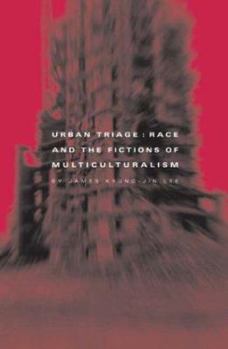Urban Triage: Race and the Fictions of Multiculturalism
(Part of the Critical American Studies Series)
Assesses fictional representations of racial conflict, cooperation, and complicity amid the urban crisis of the 1980s
In the 1980s, America witnessed an explosion in the production, popularity, and influence of literary works by people of color and a decade long economic downturn that severely affected America's inner cities and the already disadvantaged communities of color that lived there. Marked by soaring levels of unemployment, homelessness, violence, drug abuse, and despair, this urban crisis gave the lie to the American dream, particularly when contrasted with the success enjoyed by the era's iconic stockbrokers and other privileged groups, whose fortunes increased dramatically under Reaganomics.
In Urban Triage, James Kyung-Jin Lee explores how these parallel trends of literary celebration and social misery manifested themselves in fictional narratives of racial anxiety by focusing on four key works: Alejandro Morales's The Brick People, John Edgar Wideman's Philadelphia Fire, Hisaye Yamamoto's "A Fire in Fontana," and Tom Wolfe's The Bonfire of the Vanities. Each of these fictions, he finds, addresses the decade's racial, ethnic, and economic inequities from differing perspectives: Morales's revisions of Chicano identity, Yamamoto's troubled invocation of the affinities between African Americans and Asian Americans, the problematic connections between black intellectuals and the black community aired by Wideman, and Wolfe's satirization of white privilege. Drawing on the fields of literary criticism, public policy, sociology, and journalism, Lee deftly assesses the success with which these multicultural fictions engaged in the debates over these issues and the extent to which they may actually have alienated the very communities that their creators purported to represent.Challenging both the uncritical celebration of abstract multiculturalism and its simpleminded vilification, Lee roots Urban Triage in specific instances of multiracial contact and deeply informed readings of works that have been canonized within ethnic studies and of those that either remain misunderstood or were misguided from the start.Format:Paperback
Language:English
ISBN:0816641811
ISBN13:9780816641819
Release Date:April 2004
Publisher:University of Minnesota Press
Length:288 Pages
Weight:0.90 lbs.
Dimensions:0.6" x 5.9" x 8.9"
Customer Reviews
0 rating





